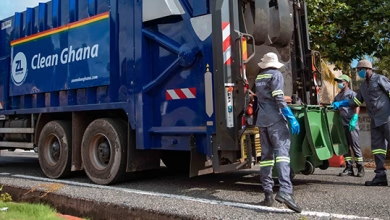The Western Region is set to receive a major boost in road infrastructure development with the allocation of 110 road improvement equipment under the District Road Improvement Programme (DRIP). This initiative aims to address the region’s road infrastructure challenges and enhance connectivity.
The equipment, which includes bulldozers, wheel loaders, concrete mixers, low beds, motor graders, water tankers, tipper trucks, backhoes, and rollers, will be utilized by the Metropolitan, Municipal, and District Assemblies (MMDAs) to improve road networks.
At the launch of the construction equipment for MMDAs at Apremdo, near Takoradi, Western Regional Minister Kwabena Okyere Darko-Mensah emphasized that the President’s vision goes beyond mere road construction. He highlighted that DRIP aims to create a connected and thriving Ghana, where every district feels the impact of progress.
The regional minister noted that DRIP represents the largest investment ever made in the Local Government Sector, providing nearly 1,500 equipment to MMDAs across the country. This demonstrates the government’s commitment to improving local infrastructure and empowering Local Authorities to drive meaningful change.
The DRIP project is expected to have far-reaching benefits, including the creation of nearly 8,000 direct jobs, stimulation of local economic development, reduction of post-harvest losses, and improvement of general service delivery across the country.
To ensure effective utilization of the equipment, the Western Regional Co-ordinating Council will closely monitor the activities of MMDAs in the region. Adequate preparations have been made for maintenance and fueling of the earth-moving equipment.
In addition, 30 participants from each MMDA will receive training on the use of the machines, totaling 420 operators and drivers trained for the region. This will ensure that the equipment is used efficiently and effectively.
The District Chief Executive (DCE) of Mpohor District, Mr. Ignatius Assah Mensah, praised the government for this initiative, stating that it will bring about a total transformation in the district. He highlighted that the district had no tarred road until recently and that many roads are in a deplorable state.
The DCE emphasized that the poor road conditions affect traders and farmers, leading to spoilage of crops and vegetables meant for markets and urban centers. He expressed gratitude for the government’s efforts to address these challenges.
The allocation of road improvement equipment under DRIP marks a significant milestone in the Western Region’s development journey. With the equipment and training in place, the region is poised for improved road infrastructure, economic growth, and enhanced quality of life for its citizens.


